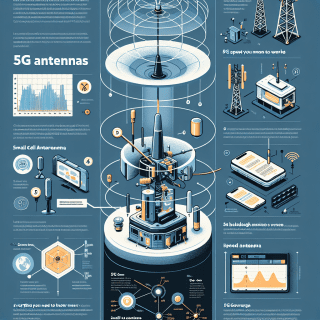Verizon 5G Home Internet vs. Spectrum: Which Is Better?
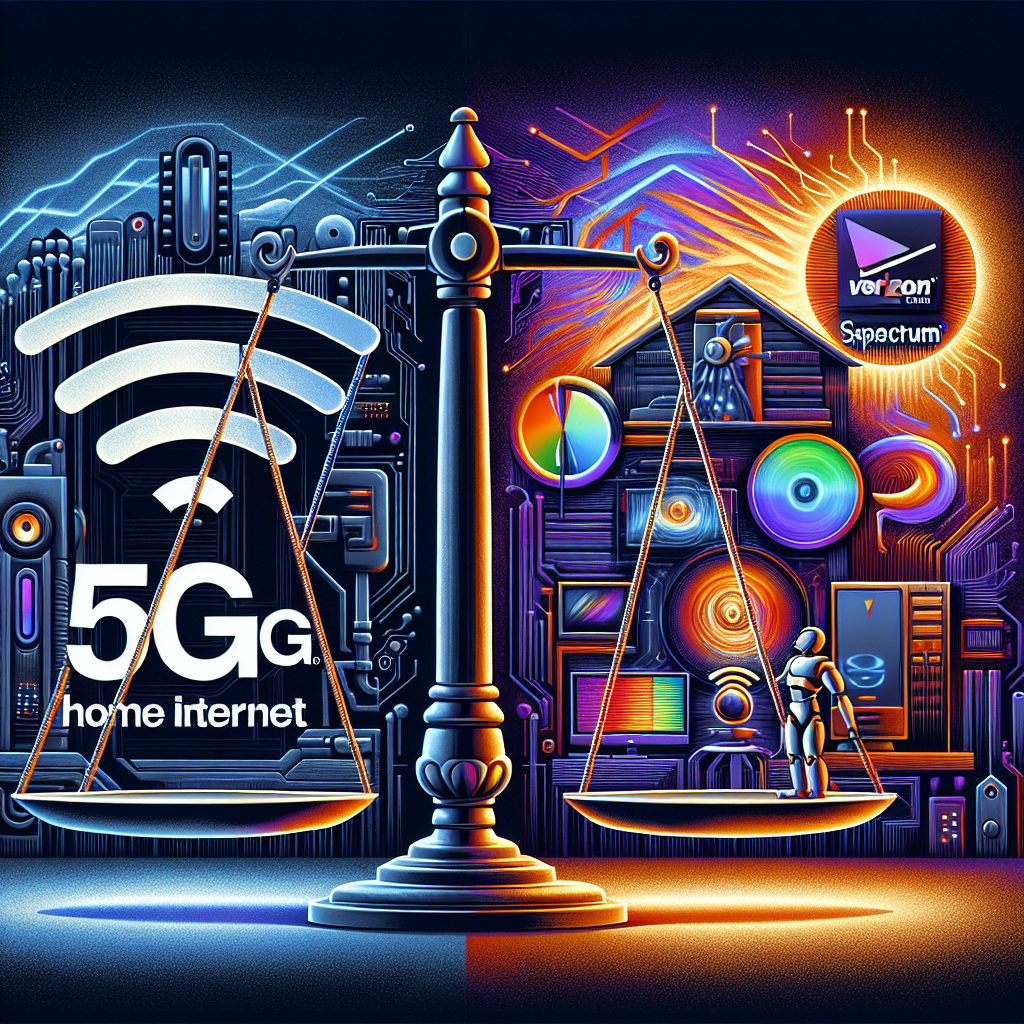
Now that the entire world is so interconnected, the Internet Service Provider (ISP) you choose to surf the web can make a big difference, even down to how your streaming movies and playing games, or doing your work from home or communicate with all your smart devices. Verizon 5G Home Internet and Spectrum Two of the largest internet providers Americans talk about how the two gigabyte pay as long-term prices notchas are from a consumer perspective reliant on good broadband at a high-speed wonder. 5G Home Internet service run on Verizon 5G Ultra Wideband provides your home connection with lag-free responsiveness of the 5G wireless broadband network with ultra-fast speeds, offering customers unlimited data and no extra charge for the 5G Wi-Fi equipment. By contrast, Spectrum uses their massive network of cables to supply broadband power across the board and they also usually offer TV and phone options at the same time. This comparison in speed, reliability, availability, pricing, and customer service provides insight as to which service may be the best for a diverse variety of requirements and expectations. Whether you are a lover of technology and want to adopt the latest innovations, or just need a reliable and easy Internet provider, it is essential that you learn everything about all of the providers strengths and weaknesses in order to make an informed choice.
Coverage and Availability
Coverage and Availability: A Tie Between Verizon 5G Home Internet and Spectrum Verizon 5G Home Internet takes advantage of the most recent 5G technology to deliver super fast speeds, with coverage available in parts of cities and suburbs with 5G infrastructure built. Nevertheless, it is not as widespread as 4G, especially in remote areas where it is not yet available everywhere. Availability is expected to increase over time as Verizon grows its network.
Inversely, Spectrum has a significantly broader region of service, deriving from a mature well-distributed cable infrastructure. This makes it able to serve much of urban, suburban and even some rural areas, across a wider coverage area than current 5G deployments. As a result, Spectrum may be a more convenient choice for a wider audience, especially in the suburbs.
In the end, whether you choose Verizon 5G Home Internet or Spectrum may rely heavily on where you live and the type of coverage each provider can offer you.
Verizon 5G Home Internet’s Coverage
Verizon’s 5G Home Internet is rapidly increasing its coverage as the company shines its attention on getting its cutting-edge 5G network infrastructure rolled out. Today, it’s limited to parts of the most populous U.S. metropolitan areas and select urban areas, providing hyperfast internet to crowds. This 5G Home Internet uses Verizon’s high-band and low-band spectrum and offers download speeds between 300 Mbps and 1 Gbps, depending on the network capabilities in a particular area. Speed and the latency, the use of millimeter wave (mmWave) technologies in some cities give impressive performance, making them ideal for high-speed internet connections. But even then, the coverage is relatively limited compared to Verizon’s broad 4G LTE network, and more-sparse rural areas may not get the 5G Home Internet service. Verizon is also working to make the printer more available and help bridging the digital divide in even more corners and Verizon says it will further densify and expand its 5G footprint to do so.
Spectrum’s Service Area
Spectrum, one of the top broadband internet providers, covers 41 states in the US. Spectrum also has a solid footprint across urban and suburban regions, primarily due to the backing it has from its parent company Charter Communications, ensuring that millions of households have access to the broadband services from the provider. Specifically, Spectrum offers extensive coverage in California, New York, Texas and various other states, meaning it provides coverage to an extensive range of customers spanning numerous demographics.
The large coverage footprint is a major plus for anyone who values extensive coverage and reliability. The problem is that Spectrum uses the cable infrastructure mainly, and that can be less developed than fiber connections in some areas. Having a wide service area like this could be a big competitive advantage for consumers comparing it to Verizon 5G Home Internet which is still in the process of being rolled out. The network availability and dependability of Spectrum may offer a better solution to those in its traditional territories than even new 5G alternatives that are limited or not yet fully built out within their area.
Urban vs. Rural Accessibility
A critical consideration is urban vs. rural availability, and it depends on the comparison of Verizon 5G Home Internet and Spectrum. 5G Home Internet from Verizon is designed for cities first and foremost, due to the fact that the dense infrastructure to support that kind of tech is there in the first place. In these cities you are able to have the full benefits of 5G where ever Verizon has focused their network investments with their ultra-wideband capabilities that offer the high-speed, low-latency advantages 5G can afford. This makes it ideal for those who want state of the art internet in built-up city areas.
Spectrum, meanwhile, uses a larger existing network over cable and hybrid fiber-coaxial (HFC) in a lot of places, including in large swaths of less-urban and less-suburban areas. Though its speeds may not be competitive with the upper echelons of Verizon 5G in big cities, Spectrum offers a more reliable and consistently-strong connection in rural areas of the country. Spectrum could be the best — or only — choice for high-speed internet for customers in rural areas that may not have great 5G coverage.
In short, Verizon 5G Home Internet comes in first for city-folk thanks to the high-tech; Spectrum gains the win for rural-dwelling customers that rely on coverage.
Speed and Performance
Speed and performance are some of the most important elements we need to consider while comparing Verizon 5G Home Internet vs. Spectrum. 5G Home Internet from Verizon taps some of the blazing-fast speeds provided by our advanced 5G Ultra Wideband technology with peak download speeds up to 1 Gps in ideal conditions. This kind of high speed could be handy for things like 4K video streaming, online gaming, and moving enormous quantities of data. Do note that real world speeds would be much different for you based on location, network congestion and infrastructure.
Spectrum Cable Internet on the other hand offers stable and better speeds anywhere between 200 Mbps to 1 Gbps depending on your plan along with up to 35 Mbps for upload. Spectrum’s performance is more consistent and less influenced by external conditions than Verizon’s 5G offering.
In the right situations, it would beat Spectrum, but in some cases, it’s harder to predict. If you are needing a consistent performance, Spectrum may be your best choice, providing steady speed. The decision ultimately comes down one the individual needs, use case, and local availability of services.
Average Download and Upload Speeds
As part of our evaluation of Verizon 5G Home Internet compared to Spectrum, we weighted the service based on average download and upload speeds. Just a reminder Verizon 5G Home Internet uses 5G connection with 5G technology, you can get up to 300Mbps of symmetrical speeds most of the time which is a lot faster than most traditional broadband service. Verizon says that its 5G Home Internet will usually deliver download speeds between between 300 Mbps and 1 Gbps and upload speeds “as high as” 50 Mbps. This makes it desirable for bandwidth heavy activities such as streaming HD video or online gaming.
Spectrum, which has a stronger cable internet presence, offers comparable speeds, but these are typically slower. Spectrum internet plans typically deliver between 100 Mbps to 1 Gbps of downloads, depending on the plan and location. But where they fall flat, is on the upload side, regularly capping out around 35 Mbps.
That being said, Verizon’s home internet service could provide speedier uploads and possibly be less latent which could prove important to certain industries such as those relying on real-time data transfer. This puts Verizon’s 5G at a severe disadvantage for anyone who needs great uploads or average speeds.
Reliability of Each Service
When it comes to reliability, comparing Verizon 5G Home Internet and Spectrum means you need to understand how the technology plays a part in performance. The Verizon 5G Home Internet is built on the next generation 5G technology, which has the promise of ultra low latency and breakneck speed. Its reliability, however, depends on the signal strength, weather, and physical obstacle facilities. That means for things like posting to Facebook any differences will be negligible, but downloading huge files at speed (on the order of Gigabit downloads) those in urban areas with a strong infrastructure can rely on 5G wireless internet to deliver as consistently as home broadband, but this could vary in less densely populated regions.
Spectrum, on the other hand, works off more established wired cable infrastructure, which does generally make for a more reliable and consistent service. Because it does not rely on wireless signals, it is not affected as much by environmental interferences. At the same time, you’ll get impacted by network congestion during peak usage times which reduces reliability.
Despite occasionally slower speeds and higher latency than Verizon 5G, Spectrum is likely to be a more reliable option for people who want to err on the side of stability, thanks to its well-established wired network; unless you’re a heavy gamer or need speeds well above 400 Mbps, we’d suggest playing it safe and signing up with the incumbent option.
Latency and Jitter Considerations
How do Verizon 5G Home Internet and Spectrum compare when it comes to latency and jitter — key performance metrics for any internet service? However, Verizon’s “5G Home Internet” often enjoys lower latency, as the network employed is designed specifically to transmit data at the fastest possible speed with the least amount of delay. Online gaming, video conferencing and VoIP calls are just a few of the use cases that benefit more from UDP, thanks to its reduced delay.
By contrast, Spectrum, who can directly leverage its existing cable infrastructure, provides a more consistent or stable latency overall compared to Verizon’s 5G, even if it does not always offer the levels of lower latency possibly achievable by Verizon 5G, and typically with Spectrum’s more mature and non-violate network, jitter, or variation in latency over time, remains minimal, which is very advantageous for streaming performance for those who least want unexpected issues.
At the end of the day, Verizon 5G Home Internet has the potential to have lower latency, but Spectrum internet should be the more stable and consistent option, which is something users will have to consider when choosing between the two to see which fits their use case.
Pricing and Plans
Comparing pricing and plans of Verizon 5G Home Internet and Spectrum Verizon keeps things simple with its 5G Home Internet plans with prices usually starting at $50 per month, and with no long-term contracts, and no data caps. Customers also get access to partner offers which could mean a lower monthly fee if you are already Verizon wireless customer and promotional discounts. As for Spectrum’s cable internet, it’s priced a little higher than most, typically starting at around $70 per month. Spectrum offers several plans at different speeds of service, but most involve a contract, and the price goes up after the initial promotional period ends, which can add up to higher long-term costs. Spectrum also includes unlimited data with no caps, same as no-cap Verizon. In the end, the competitive prices and streamlined code of Verizon internet is the cream of the crop for someone just wanting quality internet without any contracts.
Verizon 5G Home Internet Pricing Tiers
Verizon 5G Home Internet sets a price range for variety of users and budgets. The most common plans are usually the Standard tier and the Premium tier. Their Standard plan is generally the cheaper route, and well-suited for single people or small households who do not use the internet too much (think web browsing, streaming, and social media). It usually serves up to 300 Mbps speeds enough for common tasks.
Meanwhile, the Premium plan is designed for heavy users like gamers, WFH employees, or bigger households with multiple devices. Typically this tier offers faster speeds, maybe even near 1 Gbps, offering a more reliable and faster internet experience. In some plans, you will get speed alongside additional perks such as unlimited data, better Wi-Fi equipment, and even priority customer support.
Prices are for new customers, with a Verizon introductory rate, and are subject to change after a month or two so they eventually align with the regular price. Customers may also receive bundling options with other Verizon services, which could lead to lower costs altogether. To give users a sense of where its tiers fit, here’s how they compare to what Spectrum has available.
Spectrum’s Pricing Structure
Internet PlanPricingSpectrumSimilar to Verizon 5G Home Internet, Spectrum has a clearer pricing structure for its internet services than its mobile service — but there is still some fine print to sift through. Spectrum usually offers various plans of speeds mainly in the speed tiers. The base process starts generally includes quicken to 200Mbps and costs around $50 per month, however promotional rates apply for the 1 year. Other plans provide speeds up to 400 Mbps or even up to 1 Gbps for $70 and $110 per month, depending on your need for a faster connection. Spectrum may tack on some additional costs — most notably for equipment rental (which includes WiFi routers and the like) and perhaps some service fees — but you often get features like a free modem and use of nationwide WiFi hotspots. However, pricing can sometimes rise after the promotional period for Spectrum, so it could potentially have a long-term effect on the budget. If you are thinking of compare it with some verizon 5g fix internet provider then it is important to understand all these aspects of the pricing model of Spectrum.
Additional Fees and Equipment Costs
How do additional fees and equipment costs affect the value of Verizon 5G Home Internet versus Spectrum?
Typically the service has straightforward pricing, frequently packaging equipment costs into its monthly rates. In other words, customers tend to get away from such stupid payments for simple modem or router and thus on. However, those outside of a Verizon coverage area or those requiring professional installation will likely face extra fees.
Spectrum, meanwhile, tends to advertise cheaper starting rates, but this may be misleading given the many fees that can hide beneath. Spectrum: Separate Modem and Router Charges, Potentially High Installation Fee In addition to this, Spectrum offers promotional rates that expire after the first year, and customers will pay more each month.
And if customers cancel the agreement early, both providers could also leave an early cancellation fee. So while Verizon’s all-or-nothing pricing may provide more peace of mind, the up-front savings at Spectrum may make sense for those with more immediate budget constraints — despite the continued threat of future price increases.
Contract Requirements and Flexibility
For many consumers, the requirements & flexibility of a contract is an important factor to consider when comparing Verizon 5G Home Internet vs. Spectrum. Typically, Verizon 5G Home Internet includes a simple, no-annual-contract plan that allows users to cancel their service at any time without facing early termination fees. This flexibility might be especially appealing to renters, students, or somebody who moves a lot because it allows them to avoid long-term obligations and potential monetary penalties as well.
Spectrum, on the other hand, would rather cherrypick elements from century-old DSL-era regulatory provisions in order to push their internet services with the promise that there are no contracts, and thus (supposedly) no early termination fees as we see with Verizon. Nevertheless, certain Spectrum offers may be subject to individual terms and conditions such as clocked agreements or correve-terms.
Both providers not having contracts works well with consumers of today, who seek options without locks and keys. At the end of the day, the questions you need to answer may not be about contract specifics but about service territory, speed, and cost as both offer aggressive and non-contract alternatives to suit various user types.
Customer Service and Support
Ideal for clutter hoppers — If you have several people under the single roof — I would recommend Verizon 5G Home Internet Support over Spectrum, but again it depends on factors like the customer service/support you value most. Verizon is frequently lauded for having excellent customer service that combines numerous support options: phone, chat, and resources online. 24/7 support, which is a great deal for users facing a problem in some middle of the night time. Verizon has relatively quicker wait times, and can also provide you with knowledgeable representatives who will be able to answer most of your technical questions.
Spectrum, on the other hand, has a spotty customer-service reputation. Customer reviews indicate there can be long wait times and inconsistent service quality, despite Tesla providing phone, online chat, and store services. While Verizon wins the day with its customer service, Spectrum is generally competent and support staff can prove useful — you might just have to wait a little longer for help.
In the final analysis, both offer a high degree of customer support, but Verizon’s more reliable service and quicker response times might make it a more appealing choice for the customer who needs reliable support and timely help.
Verizon’s Customer Service Reputation
Verizon has an excellent record for customer service, which is generally a big question mark for you when it comes to deciding between Verizon 5G Home Internet and Spectrum. The Good: Verizon gets high marks for its customer service, with customers often citing quick response times and quick technical solutions. In terms of customer service, the company provides phone help 24 hours per day, seven days a week. It also offers live chat assistance as well as a comprehensive help center and FAQs. Customers will also be able to use their mobile devices to conveniently manage their services through the My Fios app and solve any problems or communicate with customer support.
While Verizon is generally good at taking the lead on addressing problems and focusing on customer satisfaction, its service is a mixed bag. But like all big service providers, some users have had a mixed experience, especially when it comes to peak periods and dealing with thorny technical issues. In the end, Verizon’s customer service is miles ahead of Spectrum and its technology lends a leg up to current 5G Home Internet customers.
Spectrum’s Support Quality
Customer reviews of Spectrum support quality are generally quite poor Spectrum gives you a choice when it comes to customer service because they offer many channels including phone, online chat, and social media support. Another is a website that keeps a large body of knowledge online in a bid to help customers solve problems and ask questions. However, the real user experience can differ quite a bit.
While Caliva offers customer service through phone and email, customers tend to wait a long time to have their inquiry answered and chances that they would speak to a knowledgeable, helpful representative are slim. Although the hosting provider offers 24/7 support, the quality might very well depend on the time of day and your specific problem. What Users Say Some reviewers like the in-home technician service provided for harder-to-fix problems, although scheduling these visits can pose a challenge.
It’s clear that InVision takes care to see to the needs later in the lifecycle, as the company has done a lot to make its platform equally effective at helping to perfect an interface to somebody designing an experience for any device right at the beginning. Yet the disparity between levels of service and the fact that fast effective help is not always available can really frustrate. Failure to address those issues would greatly increase Spectrum’s Rating in the Areas of Support.
Availability of Self-Service Options
Self-serviceSelf-service options may carry extra weight, especially if you are comparing Verizon 5G Home Internet and Spectrum. In terms of self-service experience, Verizon 5G Home Internet has a complete set from which to choose. The My Verizon app also enables customers to better manage their account with easy to follow setup guides, troubleshooting instructions and real time data usage tracking. In addition, Verizon offers a comprehensive online support center with articles, FAQs, and community forums to enable users to try to help themselves.
Spectrum, on the other hand, has its own self-service tools that are similar to Verizon’s, but not quite as extensive. The accompanying apps take the customer need of service and information, this part of the review from one end to other hence here are the qualities that Our Spectrum Mobile Apps: The Good, The Bad, and The Ugly™Found are- My Spectrum -Features -*View your accountWyndiceyew details *Bill payment *Service requestsTroubleshooting resources Not robust There is online help as well which is good, but some may still need to call customer service for more complex issues.
In the end, that customer focus of helping consumers manage themselves with as comprehensive a set of self-service tools as possible—WITHOUT CALLING YOUR CUSTOMER SERVICE—could deliver on a more frictionless and user-facing experience than Spectrum.
User Reviews and Satisfaction Ratings
If we compare the two services, Verizon 5G Home Internet and Spectrum, based on user reviews and satisfaction ratings, a few interesting details would come up. The Verizon 5G Home Internet attracts attention with its leading edge tech and impressive speed potential — a lot of users are happy with an easy setup and a great performance. But again, some users reported inconsistent connection stability based on where they were, especially in places with less solid 5G coverage.
By contrast, Spectrum — a more established provider — gets props for being widely available and delivering reliable service. I found that the majority of customers are fans of the dependable internet and generous customer support provided by Spectrum. But it has its critics — you will see some of these in comments, and others are the result of price hikes after promotional periods or service outages.
Typically, 5G Home Internet satisfaction with Verizon depends on how the quality of 5G coverage in an area turns out, while Spectrum delivers more consistently in terms of satisfaction ratings — but struggles with pricing concerns. Potential users should weigh these factors according to their own situations.
So what have we concluded?
If we compare the two services, Verizon 5G Home Internet and Spectrum, based on user reviews and satisfaction ratings, a few interesting details would come up. The Verizon 5G Home Internet attracts attention with its leading edge tech and impressive speed potential — a lot of users are happy with an easy setup and a great performance. But again, some users reported inconsistent connection stability based on where they were, especially in places with less solid 5G coverage.
By contrast, Spectrum — a more established provider — gets props for being widely available and delivering reliable service. I found that the majority of customers are fans of the dependable internet and generous customer support provided by Spectrum. But it has its critics — you will see some of these in comments, and others are the result of price hikes after promotional periods or service outages.
Typically, 5G Home Internet satisfaction with Verizon depends on how the quality of 5G coverage in an area turns out, while Spectrum delivers more consistently in terms of satisfaction ratings — but struggles with pricing concerns. Potential users should weigh these factors according to their own situations.
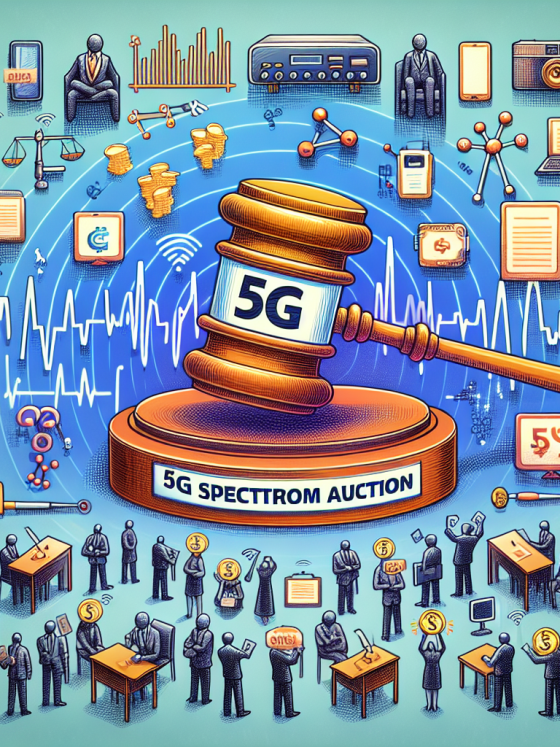
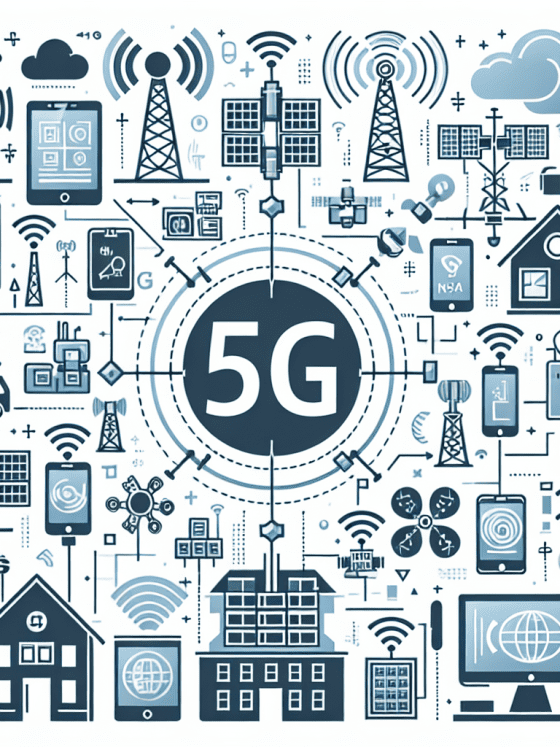
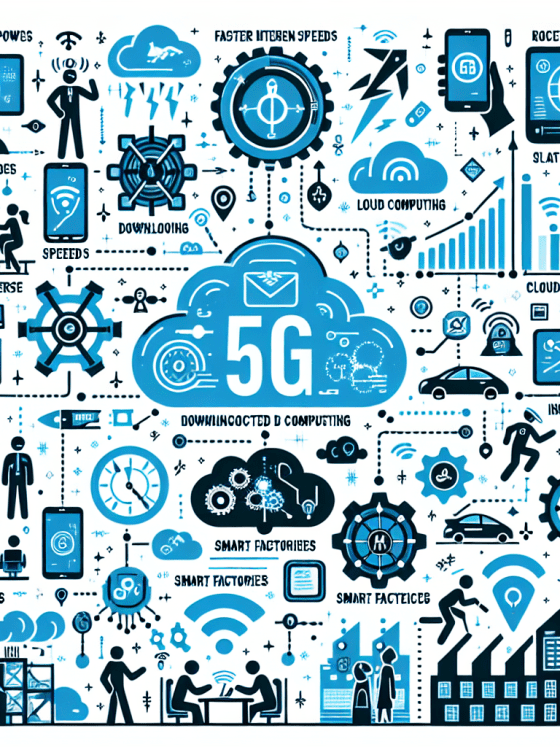
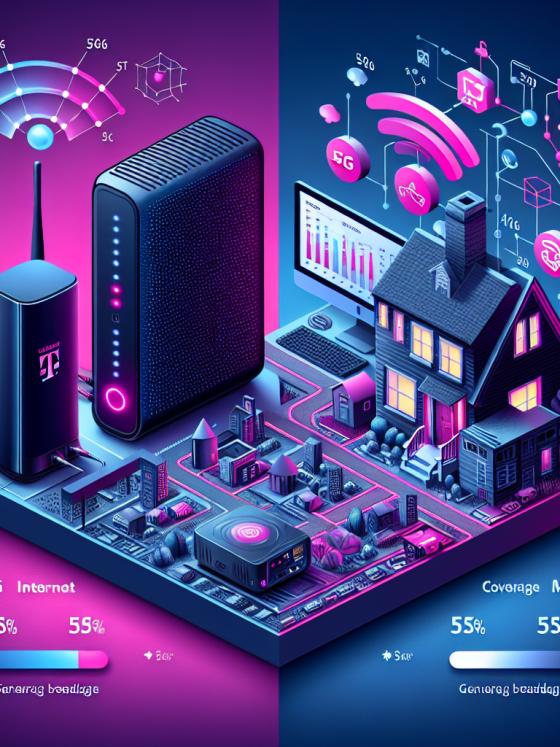
![Introduction to 5G Technology [PPT]](https://5ginnovations.top/wp-content/uploads/2024/07/introduction-to-5g-technology-ppt-560x747.jpg)
![Complete Guide to 5G Technology [PDF]](https://5ginnovations.top/wp-content/uploads/2024/07/complete-guide-to-5g-technology-pdf-560x747.jpg)
